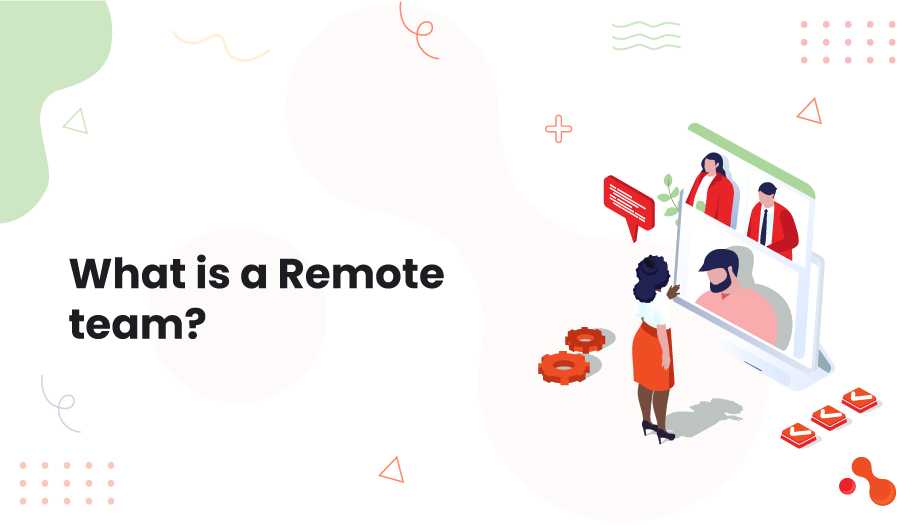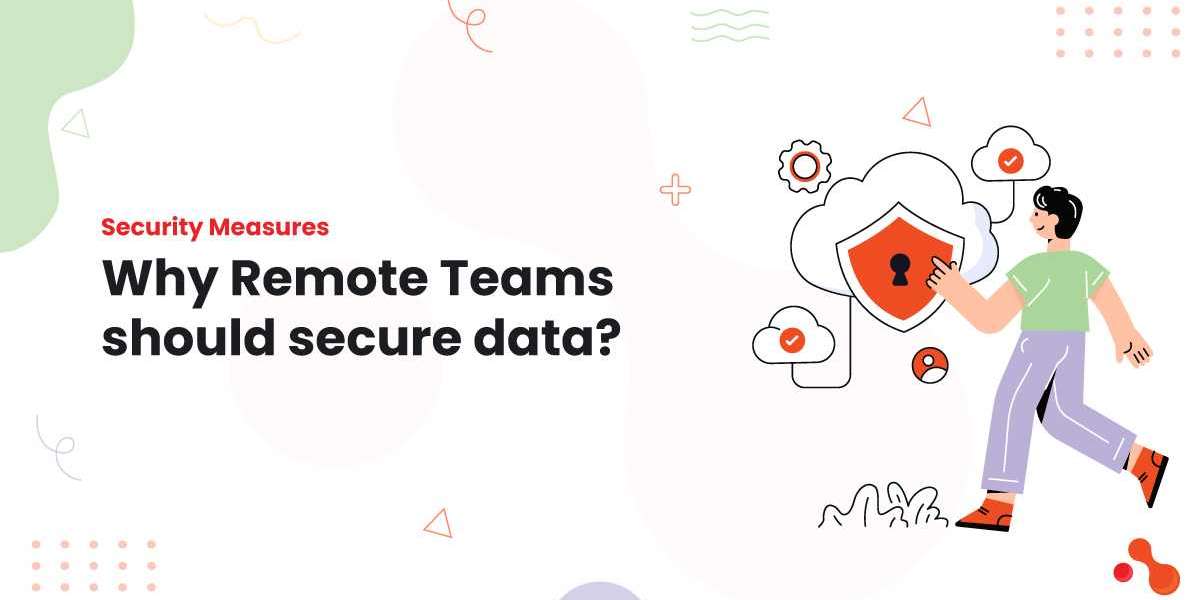Introduction
In the digital Internet driven era, data security stands as of the most critical concern for an organization, especially those that hire remote teams. The shift towards remote work has come into limelight due to COVID-19 pandemic, thus leading to new data security challenges that businesses need to address quickly.
This article will highlight unique risks associated with remote work environments and provide detailed solutions to mitigate these vulnerabilities, thus ensuring a stronger data protection for the organizations.
Now, let’s first begin by understanding what a Remote Team is.
What is a Remote Team?

Remote team is a group of skilled IT professionals who work together from various geographic locations outside of their traditional office environment. This lets them work from home, a co-working space or any other location with internet connectivity. Remote team comprises tech talents that are spread across different cities, countries or even continents.
This setup can offer various benefits, including increased flexibility, access to a wider talent pool, reduced overhead costs for businesses, and potential improvements in work-life balance for employees.
However, it also introduces several data security risks that organizations must consider. The primary challenge is the lack of controlled environments that are typically found in office settings. Home networks generally have weaker security protocols, making them more susceptible to attacks. Additionally, remote workers are more likely to use personal devices for work-related tasks, which may not be adequately secured.
Are you also facing these concerns while managing remote teams for your software development project then keep reading this article.
Secondly, let’s understand why data security is important in remote software development project
Why is data security important in remote software development projects?
Data security is crucial in remote software development projects for several reasons:
Protection of Sensitive Information:
Remote development often involves accessing and transmitting sensitive data over networks. Ensuring data security prevents unauthorized access and protects intellectual property and confidential information from breaches.
Maintaining Client Trust:
Effective data security measures help maintain trust between the development company and its clients, which is essential for long-term business relationships.
Regulatory Compliance:
Many industries are governed by strict data protection regulations. Secure practices ensure compliance with laws like GDPR, HIPAA, etc., avoiding legal penalties and reputational damage.
Mitigating Remote Vulnerabilities:
Remote environments can be more susceptible to security risks due to less controlled network environments, like home Wi-Fi systems or public internet access points. Robust security measures counter these risks.
Ensuring Business Continuity:
Security breaches can lead to significant downtime and disruption. Protecting data integrity and availability ensures that development projects proceed without unexpected interruptions or losses.
Overall a strong data security is fundamental to safeguarding the assets and reputations of both the development team and their clients, ensuring the smooth execution and delivery of software projects.
Now moving further, let’s identify a few key data security risks in remote settings
5 Key Data Security Risks in Remote Settings
Insecure Home Networks: A majority of internet setups lack proper security measures that corporate networks employ like an advanced firewall and intrusion detection systems.
Using Personal Devices:
Remote team talent would use personal laptops, smartphones or tablets to access any work-related file, which might not meet the company’s security standards.
Phishing Attacks:
As remote tech talent is scattered across different locations, there is a huge risk of phishing attacks, as cybercriminals would exploit the potential lack of communication and verification process.
Data Leakage:
Remote team can lead to increased risk of data leakage, whether through an insecure data transmission or a physical loss of devices.
Lack of Physical Security:
Remote work environments often lack a physical security measure like secure cabinets or surveillance, that are more manageable in an office environment.
Now, further let’s understand a few Effective Strategies to Enhance Data Security in Remote Work
What are few Effective Strategies to Enhance Data Security in Remote Work?
To address the challenges posed by remote work, organizations must implement a multi-faceted approach to data security that includes technology solutions, policies, and employee training.
Secure Network Connections:
Organizations should require the use of virtual private networks (VPNs) to create a secure connection between remote workers’ devices and the corporate network. This ensures that all data transmitted is encrypted, reducing the risk of interception.
Endpoint Security:
Ensure that all personal and company-provided devices are equipped with updated antivirus software, firewalls, and anti-malware programs. Regular security audits and updates should be mandated to protect against new threats.
Multi-Factor Authentication (MFA):
Implementing MFA can significantly reduce the risk of unauthorized access. Even if login credentials are compromised, the additional authentication steps can prevent data breaches.
Data Access Controls:
Limiting access to sensitive data based on roles can minimize the risk of data leakage. Employees should only have access to the data necessary for their specific tasks.
Regular Training and Awareness Programs:
Continuous education on the latest security threats and best practices is crucial. Employees should be trained on recognizing phishing attempts, securing their home networks, and safely handling data.
Now, further let's understand a few Technological Solutions to Support Data Security.








